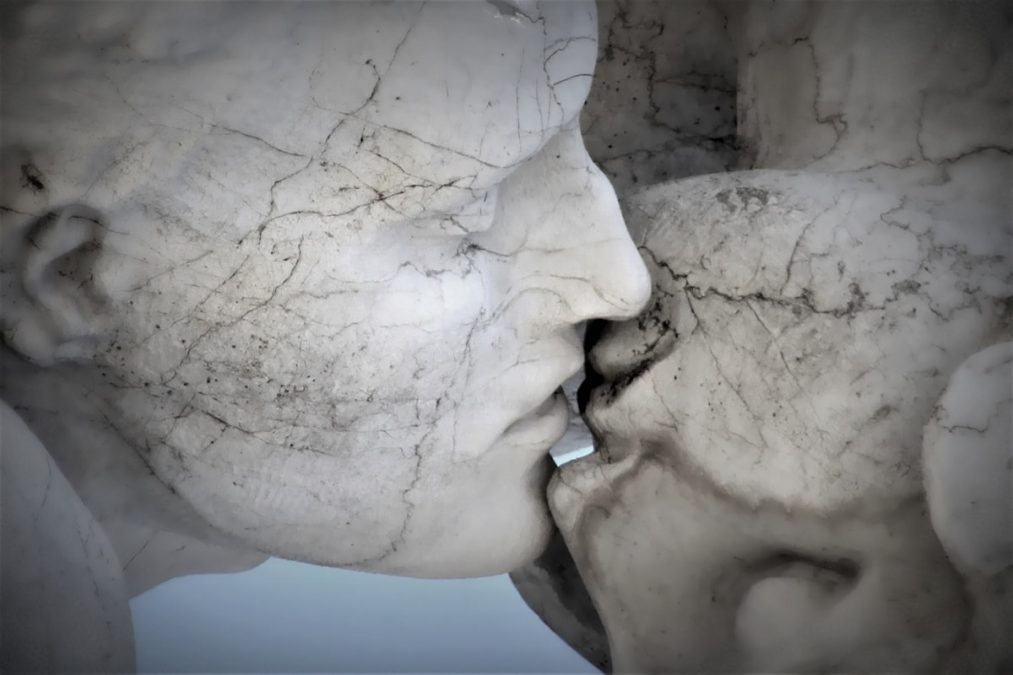
Anne Richards: Spiritual Abuse
February 9, 2024
The Future of Church Safeguarding: A look at the Jay Report
February 21, 2024There has been some controversy about the recent appointment of theological advisers to the House of Bishops. It’s clear from the recent statement of seven of them, A Theological Vision, that they badly need theological advice, for in the guise of promoting unity within the church they offer a string of statements that are tendentious, prejudicial, question-begging and evasive. Uniting around these, as they urge, makes no intellectual, moral, or ecclesial sense.
They say they are ‘committed to holding to the Church’s historic faith and moral teaching’. Good. So do they think, with Jesus, that Christians should not lend money expecting interest (Lk. 6:34-5)? Are they treating their slaves well (Eph. 6.9)? Are they resolutely opposed to divorce and ‘further marriage’ as Jesus was (Lk. 16:18)? Do they think marriage is a sacrament? Or only an ‘ordinance’? Do they support the Lambeth Conference of 1920, when it condemned contraception, or the Lambeth Conference of 1930, which allowed it? They wilfully ignore that moral and theological teaching has changed, and is changing still.
They say marriage is a ‘joyful, lifelong union’ while ignoring that their positive view of marriage is what draws many faithful lesbian and gay Christians to it. But they quickly assert it is a ‘union of male and female, the two forms of created humanity’. One might expect bishops to be aware of how Jesus Christ changes all this. Now we have been ‘baptized into Christ’ and ‘clothed [y]ourselves with Christ… there is no longer male and female’ (Gal. 3:27-8). They make ‘male’ and ‘female’ into a modern and unbiblical complementarian dogma. In doing so they maximize sexual difference – instead of minimising it, probably with the aim of re-assigning intersex people to an approved binary form of humanity, and tramping down on trans people, who must be either mistaken in their dysphoria, or arrogant in expressing their discomfort with the sex to which God has undoubtedly assigned them.
They assert that marriage is ‘the proper place for sexual intimacy’. So all non-marital expressions of intimacy are improper. How do these bishops know this? Do they think marriages begin with weddings? As guardians of the Church’s historic faith and moral teaching, they will know that according to the Church’s historic faith and moral teaching, marriages begin with betrothal, the matrimonium initiatum, not with the wedding ceremony (the matrimonium ratum). Their own Prayer Book tells them the wedding service is the Solemnization of matrimony, not its inception. Millions of Christians are quietly having sex pre-ceremonially. Presumably they are second class Christians too.
They say ‘Singleness is more than sexual self-denial’. Yes, it might be a life-contingency: it might be a divine calling. But that is not their meaning. They seek to impose sexual self-denial on gay people while reserving marriage for themselves.
They say the Christian life is ‘life in all its fulness through death-to-self in repentance and faith’. They will be aware of their own crafty conflation of fulness of life with emptiness of self, of life abundant with self-sacrifice. This no more than an underhand pastoral move, unworthy of Christian leaders, dumping self-death on queer, non-heteronormative people. The bishops wilfully conflate the necessary suffering that some Christians in some times and in some places are to ‘rejoice in’ (1 Pet. 4:13) with the unnecessary suffering that they seek to impose on gay people. They mix up what they call ‘sacrificial discipleship’ with second-rate ‘unsacrificial discipleship’ – the sort practised by Christians who think differently from them.
They say ‘The Church invites all people to a life of worship and holiness, serving others with compassion, and learning to be turned outwards in love for God and neighbour’. Where is self-affirmation and self-acceptance in all this? The Great Commandments of Jesus require we love ourselves, God, and neighbour. How can we love ourselves when we cannot express our love for another? They weaponize holiness, by implying that holiness is confined to married heterosexuals, and ‘single’ people, straight or gay. But undefined holiness, like its conceptual synonym – purity – is never far from exclusion, and often disgust.
They say ‘All are invited to find true forgiveness, belonging, identity, peace, joy, hope and an eternal destiny in Christ’. ‘True’, of course, is a persuader-word, contrasting their version of forgiveness, etc., with other versions that ‘less’ true’ or even ‘false’. Note that ‘identity’ is in this mix. Our ‘true identity’ is in Christ. Yes, provided that the inference is not drawn that any other identity statements, such as being LGBTIQ, are either not true, or not true in any sense that matters.
They remind us ‘As the Articles say, what is not found in Scripture cannot be imposed on the Church, and the Church lacks authority to ordain anything contrary to God’s word written’. But it becomes necessary to remind them that how they read Scripture ‘is not found in Scripture’ and ‘cannot be imposed on the Church’. Indeed they appear to read Scripture as Paul’s opponents did in Corinth. Paul had to tell them to be ‘ministers of a new covenant, not of letter but of spirit; for the letter kills, but the Spirit gives life’ (2 Cor. 3:6). It is the bishops themselves who are attempting to impose their own blinkered interpretation of the Bible on the Church. They are unfortunate victims of their own inadequate and homophobic theology, while LGBTIQ people continue to pay the price.
Adrian Thatcher, on behalf of Modern Church. His new book, Vile Bodies: The Body in Christian Teaching, Faith and Practice (SCM) explores some of the issues touched on here, and the abusive theology that informs them.





11 Comments
I’m increasingly of the view that it is impossible to have a rational adult conversation with those who oppose the recognition of loving gay relationships. As you say, the partial application of ‘scripture’ to support those views that you already hold makes dialogue impossible. If some cannot accept the changes that have been decided by the Church then I’m afraid they are the ones who are out of step. There are plenty of other fundamentalist sects available if they would be happier there. The C of E is a diverse inclusive community or it is just another one. Just get on with it.
Thank you Adrian Thatcher. I long to see those Bishops freed from their terror of being the “wrong side of Salvation” Living in such a fear contradicts the Gospel.. christ bids us to Seek the Kingdom of God not define it.
I have tried very hard to hear and be alongside . All I can hear is terror and feel constricted life. There is no having life and having it abundantly
Alan Race says:
This blog should be the Manifesto for the next A B of C.
Oh thank you so much for this remarkably clears, Biblical and (in a way) restrained piece of theology. I needed it very badly today, and along it came.
I write just some of the questions, and points that your article brought to mind:-
1. LGBTQ+, & deviant behaviours have always been inside the Church in ‘large numbers,’ but mostly hidden.
2. Importance of Purity:- of self, & Church.
3. Acceptabilty scale for those allowed to be within the Church hierarchy, and / or the laity. Are boundaries to entry necessary, & why.
4. Stresses and strains of:- lying to self, and others.
5. Overal indicators of the mental health in; abused, and LGBTQ+ communities vs heterosexual unions. Why is this?
6. Define a modern, but faithful, interpretation of what the Bible presents as sin.
7. Is turning away from all types of ‘sinful behaviour’ accepted in ‘woke’ society?
8. Does Matthew 7:13-14 have relavence here (abbr): ‘the narrow gate, the narrow road, that leads to life’ ?
9. Is the process of an individual’s prayer to God, combined with the confession of sins, and the turning away from such sin; a cleansing, and regenerative process?
‘Let anyone without sin cast the first stone’. Be careful what you wish for! A sense of regret for our mistakes and a determination to do better is not defined by how well we conform to a list of social and moral standards from 2000+ years ago, when multiple wives, child slavery and exploitation and horrendous violence in the name of ‘God’ were commonplace. If you can’t see love when it’s staring you in the face you obviously are lost, for all the clever-sounding questions above.
Interesting. I notice that all the comments are in agreement with Adrian’s post. Could it be that the society that “open, respectful debate on Christian faith” is removing comment that it disagees with.
The comment immediately above your own is engaging in a questioning manner, so I think your insinuation is unjustified. Perhaps some comments were made which fell short of being open and respectful and therefore not included? Perhaps the number of approving comments are because a lot of people actually support the sentiments of the article?
Thank you Adrian for writing such a clear and meaningful article which highlights the continuing use of Biblical Interpretation to exclude those Jesus readily includes. A very moving and thoughtful piece. Anton Muller (Revd)
Grateful to Adrian For getting to the root of theological issues of which the current LLF debates are a symptom.
Some above have commented on the need to get back to clarification of basic Biblical concepts such as Sin. I agree, and would refer back to my blog post on just that subject (18 January 2022).
I was reminded of a sermon I heard long ago from a priest in Wales who ministered to a young offenders’ institution. From other references his own background was clearly evangelical. Yet he saw his ministry with those young people as mainly about building up their broken self-esteem. There is a most important difference between the sin of Pride (putting myself in the place of God) and the virtue of Self-Esteem (learning to value the Self which God has given me). That distinction is all too rarely made within most theological traditions. But it is certainly a lesson which LBGTQ Christians have had to learn, and as a privileged white male heterosexual Christian (and – mostly – an outwardly very respectable and observant one), I have been glad to learn it from them.
An excellent analysis and powerful argument for inclusion.